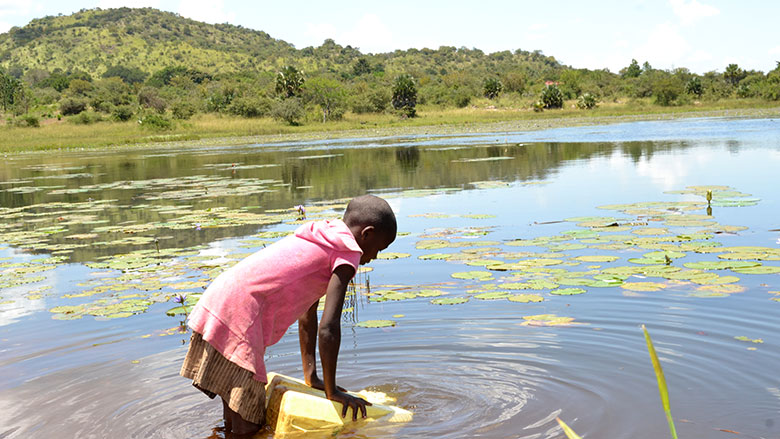
The UK, in partnership with Italy, has received international backing to jointly host the COP26 climate summit in 2020.
This is a huge boost for our work to tackle climate change and follows the PM’s commitment at the G7 Summit in Biarritz to ensure that the COP26 Summit addresses both climate change and biodiversity as two sides of the same coin.
The event will take place in Glasgow and will be the UN’s 26th climate change conference. It will bring together over 30,000 delegates from around the world, including climate experts, business leaders and citizens to agree ambitious action to tackle climate change.
Foreign Secretary Dominic Raab welcomed the news saying:
‘The UK has just received a huge vote of confidence from our international partners. We’re poised to host the next major global climate negotiations, in partnership with Italy. Over 30,000 delegates from around the world will come together to commit to ambitious action to tackle climate change.
The Italian Minister of Foreign Affairs and International Cooperation, Hon. Luigi Di Maio, commented:
“The support of our UN Regional Group reinforces our credibility as major international players in the fight against climate change. The result – even more significant on the eve of the Summit for Climate convened in New York by the UN Secretary General – was a success attributable also to our diplomatic network. Italy, in line with the vanguard role in the EU sector and in a spirit of fruitful partnership with the United Kingdom, will not fail to make its own contribution of ideas, skills and organization, also in view of our G20 Presidency, in 2021. “
International Development Secretary Alok Sharma:
“This nomination is testimony to the UK’s leading role in the global fight against climate change. UK aid has helped millions of people in developing countries to access clean energy and prepare for the impact of climate change. This is protecting our planet for future generations.”
In Uganda a renewable energy programme supported by the UK government and partners has so far contributed 87MW of renewable energy to the national grid, about half of the total design capacity to be achieved by the end of the programme. This project is projected to lead to a reduction of about 10 million tons of CO2 equivalent in 20 years, has generated 8568 jobs and from a $100 million investment, of which the UK contributes over 50%, has leveraged a total of $450 million additional public and private sector investment.
“The UK government is also supporting the global challenge to mitigate and adapt to climate change through a climate smart agribusiness programme in the Northern Uganda and through institutional partnerships with the UK Space Agency working with the Government of Uganda to address drought and flooding through early warning systems.” said Alex Crook, East Africa Climate Change Lead at the British High Commission.
The UK is also working with African nations to deliver ambitious outcomes from the recent UN Climate Action Summit. During the UN General Assembly week in New York the UK Prime Minister announced that the UK’s International Climate Finance (ICF) spend would be doubled and launched an innovative new fund to give developing countries access to the latest cutting-edge technology to help reduce emissions and meet global climate change targets. UK aid will now help protect one billion people from the impact of extreme weather through a new £175 million package to help make people safer and better prepared for weather disasters and £61 million will be used to develop crops which are better adapted to grow in higher temperatures, withstand droughts or floods, and have natural resistance to pests and diseases.
Italy’s decision to work in partnership with the UK to host COP26 stems from the leading role that it plays in combating climate change. Italy has reduced its CO2 equivalent emissions from the 518 tonnes of 1990 to 427 tonnes, with a stable decrease in the past few years. Together with EU partners, they committed – under the Paris Agreement – to reduce greenhouse gas emissions by at least 40% by 2030 compared to 1990 levels. Moreover, Italy has been one of Europe’s forerunners in implementing smart metering systems to help households keep track of their electricity consumption.
This is in line with Italy’s world-wide leading role: in the period 2013-2020, Italy significantly “over achieved” the CO2 estimated reduction, thanks to the development of renewable energies which stood at above 18% of total energy consumption in 2018 (thus surpassing the EU targets of 17% set for 2020) with a quota on electricity generation of 39.7% (out of which 49% hydro and 40% wind and solar).
Through the involvement of its private sector, Italy is also at the forefront on the themes of access to energy and clean cooking in Africa, in line with UN 2030 Agenda and with the African Union’s 2063 Agenda. Italy is tied to Africa by a common history, founded on millenary commercial relationships, on cultural affinities and political visions that have often united us.
Whilst organizing the preparatory events leading to COP26, Italy and the UK will continue to work for and with Africa, to face the severe challenges linked to climate change.
